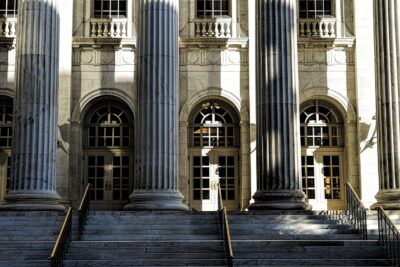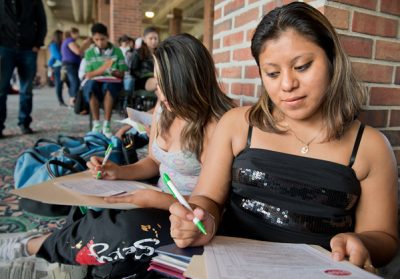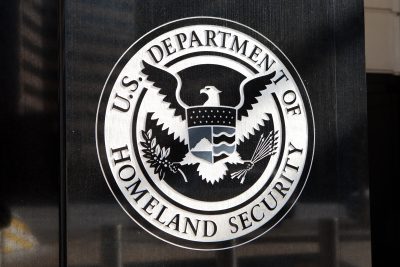Border Enforcement
Migration at the border is a multifaceted issue, challenging the U.S. to secure our borders while upholding the human rights of individuals seeking safety and better opportunities. Balancing national security with compassion and our legal obligations to asylum seekers presents intricate dilemmas, and we collaborate with policymakers to advance bipartisan, action-oriented solutions.
Beyond A Border Solution
- Asylum
- May 3, 2023
America needs durable solutions. These concrete measures can bring orderliness to our border and modernize our overwhelmed asylum system. Read…
Read More
New Report Holds Immigration Detention System Up to the Light
Transparency and oversight have never topped Immigration and Customs Enforcement’s (ICE) priority list—especially during the post-9/11 Bush administration when ICE’s detention system nearly tripled in size. Last month, however, ICE director John Morton announced a new plan to overhaul the flawed immigration detention system and broaden federal oversight. Sure, the new plan was announced shortly after ICE was forced by the ACLU under the Freedom of Information Act (FOIA) to release a “comprehensive list of all deaths in detention” (which now totals 104 since 2003), but still, John Morton’s intention to make ICE more transparent and efficient seems sincere. The question, however, is whether or not ICE will actually be able to restructure its sprawling detention system after years of scant oversight and zero accountability. Read More

Immigrants with Mental Disabilities Are Deprived Their Day in Court
The U.S. legal system is premised on the idea that every party in a case is afforded his or her day in court and a meaningful opportunity to be heard. Yet, for individuals with mental disabilities facing deportation from the United States—including those whose removal will mean being permanently barred from ever returning—that day may never arrive. Read More

You Can Still Be Heard: DHS Extends National Dialogue Deadline
The Department of Homeland Security has extended the National Dialogue on the Quadrennial Homeland Security Review deadline until tomorrow, Wednesday, September 9th. Log onto DHS’ website now and post your comments and feedback. Your voice should be heard. The 2009 Quadrennial Homeland Security Review process is a web-based… Read More

Speak up! The Department of Homeland Security is Listening
The 2009 Quadrennial Homeland Security Review process, a web-based interactive dialogue designed by the Department of Homeland Security (DHS) to allow your opinions and ideas to inform and strengthen the Department’s relationship with its vast array of partners and stakeholders, has been up and running for a few weeks now. The online portal, however, will stop taking comments this Sunday, September 6. Read More

New Report Measures Widening Gap Between Republicans and Latino Voters
A New York Times article from 1882 stated, “It is a trite saying that in a free country public opinion rules. […] It often happens that a question of policy becomes of pressing importance before public opinion develops in regard to it.” More than one-hundred years later, this idea remains true—especially in regard to Latino voters and the Republican Party. Read More

Local Company Gives ‘Sin City’ a Bad Name
Las Vegas prides itself on its strong union-staffed hotels and casinos. However, according to a class-action lawsuit recently filed, Bravo Pro Inc. was allegedly paying workers $3.50 to $4.00 per hour for 13-hour shifts with no overtime pay. Their employees were providing janitorial and maintenance services to Bravo’s clients around the city. According to the Las Vegas Sun: The workers’ attorney, Matthew Callister, says the company held its mostly-Mexican workforce in a form of “indentured servitude,” squeezing more labor out of frustrated workers by promising to make them whole one day. Many tired of waiting and quit. Others, undocumented and desperate for work, remain silent. Read More

Faith and Leadership Required: A Closer Look at Last Week’s White House Meeting
Last week’s White House meeting on immigration marked another chapter in the years-long effort to enact comprehensive immigration reform. Janet Napolitano’s invitation to more than one hundred representatives from business, labor, faith, law enforcement, and immigration groups was a genuine attempt to listen to concerns and solicit ideas. The format—large group meeting addressed by the Secretary, small group discussion led by various DHS and White House officials, summary and surprise remarks from the President—gave people a chance to say just a little, but the cumulative effect was more important than we may realize. Read More

New Report from Cato Institute Highlights Economic Benefits of Legalizing Unauthorized Immigrants
Leading economists agree that the cornerstone of any immigration reform bill should be some form of legalization for the roughly 12 million undocumented immigrants currently living in the United States. Critics of legalization, namely enforcement-only cheerleaders, fail to realize that legalization would improve wages and working conditions for all workers—including the native-born—and would yield a net benefit to the recovering U.S. economy. One study estimates that an immigration reform bill which includes legalization would yield a net benefit of $180 billion over a ten-year period, while enforcement efforts alone would actually cost $80 billion over the same period. Read More

States and Localities Critical to Immigration Policies
Governors and mayors, state legislatures and city councils are playing an increasingly critical role in U.S. immigration policy. As a result of Congress’s inaction, states and localities are feeling pressure to take action on immigration, and many of the policies that directly impact immigrants’ lives—law enforcement, public benefits, driver’s licenses—are being driven by new state and local laws. Some state and local immigration policies have been positive and have helped to integrate immigrants into American communities. Others, however, have had a harmful impact on immigrants as well as on public health and safety. The National Conference of State Legislatures (NCSL), a bipartisan organization that serves the legislators and staffs of the nation's 50 states, recently published two documents that highlight the role that states play in immigration policy. One is a report on recent state activity, and the other is NCSL’s official immigration policy statement. Read More

Quadrennial Homeland Security Review: Is DHS Asking the Right Questions?
If you go to the National Dialogue on the Quadrennial Homeland Security Review (QHSR) website and click through to the Smart and Tough Enforcement of Immigration Laws section, you will find a bit of surprise. Despite a title that panders to the enforcement first crowd, implying that immigration policy is all about being “tough,” there is actually a remarkably thoughtful effort to capture a broader set of immigration policy goals. Take a look at the mission statement: A secure, unified, fair, adaptive, and responsive immigration system that protects the public, enriches our society, and improves our economy. Read More
Make a contribution
Make a direct impact on the lives of immigrants.

